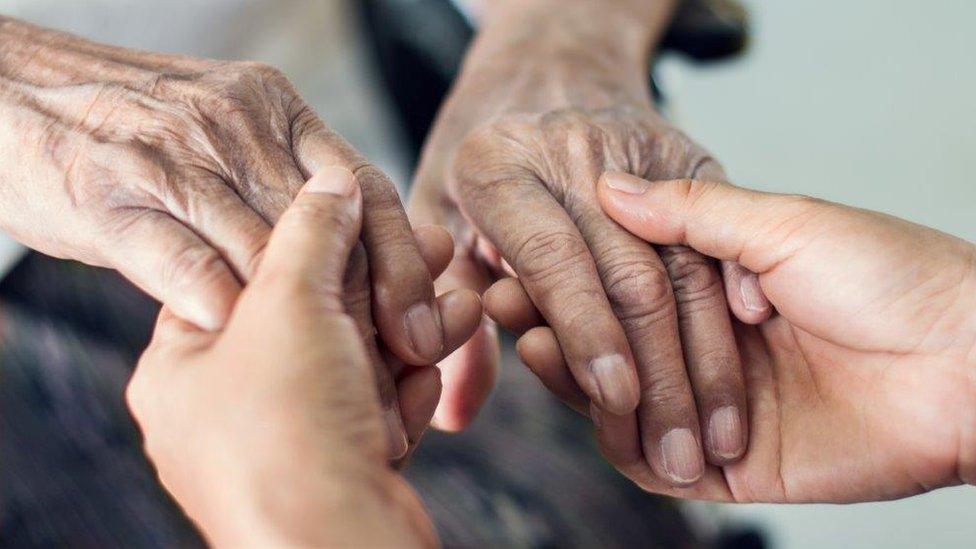Unpaid carers: 'I had to choose to care for my husband or my sister'
- Published
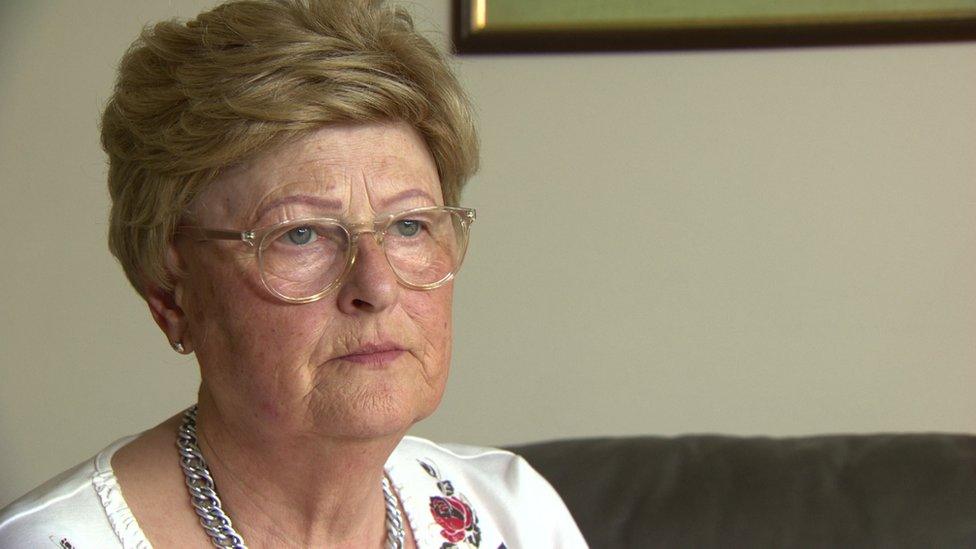
Miriam Murray cares for her husband Ian, who has dementia
An NI woman who had to choose between caring for her husband or her sister has called for greater support.
Miriam Murray, who is also recovering from cancer, said the appointment of a dementia carers co-ordinator by the charity Praxis was "progressive".
But she feels more needs to be done to support unpaid carers.
More than 220,000 people provide unpaid care for a sick or disabled family member or friend in Northern Ireland, about one in eight people.
Caring for people at home reduces pressure on the health and social care system including reducing the number of people in residential care and hospital.
'I am not the person I was'
According to County Londonderry woman Miriam, who is 77, her life was "torn apart" when she had to choose to care for her husband Ian, 89, at home while her sister Jennifer, 73, was placed in assisted living accommodation.
Ian, who was an engineer as well as a keen cyclist and photographer, was diagnosed with vascular dementia in 2020 while Jennifer is living with young onset Alzheimer's disease.
Miriam said she had to "let one go" to look after the other.
"It is just exhausting; I am not the same person that I was."
Miriam Murray says caring means she has neglected her own health
When asked if she was patient with Ian, she laughed and said: "I am working on that."
The demands of being a carer mean "time is very tricky," she said
"You are torn between what you want to do and what you have the time to do."
That pressure, she said, meant she neglected her own health.
"I ended up needing treatment for a melanoma. I was going up and down to Belfast for treatment and that meant I was calling on friend's to keep Ian company."
To help people like Miriam, Praxis, the largest registered care charity in Northern Ireland, has for the first time appointed a dementia co-ordinator to focus entirely on carers.
While it supports people with mental health, learning disabilities, autism and dementia, the demand for support from carers has also increased.
'Neglected and forgotten'
Tracy Smyth, who took up the post in January, said carers are neglected and are a forgotten part of society.
"They are the glue that keeps it all together. They do so much for caring and our health care system is so much under pressure - without our carers we just couldn't cope," she said.
Carers, she told BBC Radio Ulster's Good Morning Ulster, often "don't get to process their emotions."
"They are dealing with the day to day, firefighting in effect, dealing with the most important, pressing issue of the day, not getting the time or space to explore their feelings," she said.
A dementia diagnosis can be especially difficult, she added.
"It is very difficult because they are processing much more. They are dealing with that living loss, that ambiguous loss, mourning the person that the cared for person was, the relationship that they had and they are also mourning the future they envisaged."
Ms Smyth's post is funded by the Department of Health for two years. It is not clear what will happen after that.
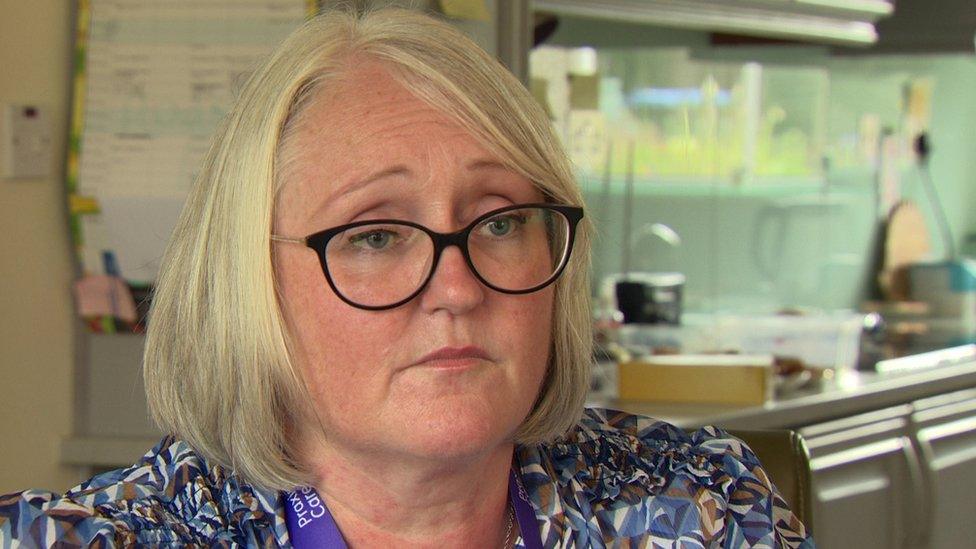
Tracy Smyth, Praxis, Dementia Co-Ordinator at Praxis, Northern Ireland's largest registered care charity
"Nobody signs up to be a carer. It is a journey that most loved ones take on with little or no skills and the very least they deserve is someone to be there to offer them that advice and help learn more about the condition and who they can turn to find support," Miriam said.
It is early days for Ms Smyth and Miriam, who are still getting to know one another and working out what exactly Miriam needs.
Miriam said having someone like Ms Smyth to signpost where she can get help for her family is a great start.
There is also advice about how to organise people to sit with her husband while she visits Jennifer.
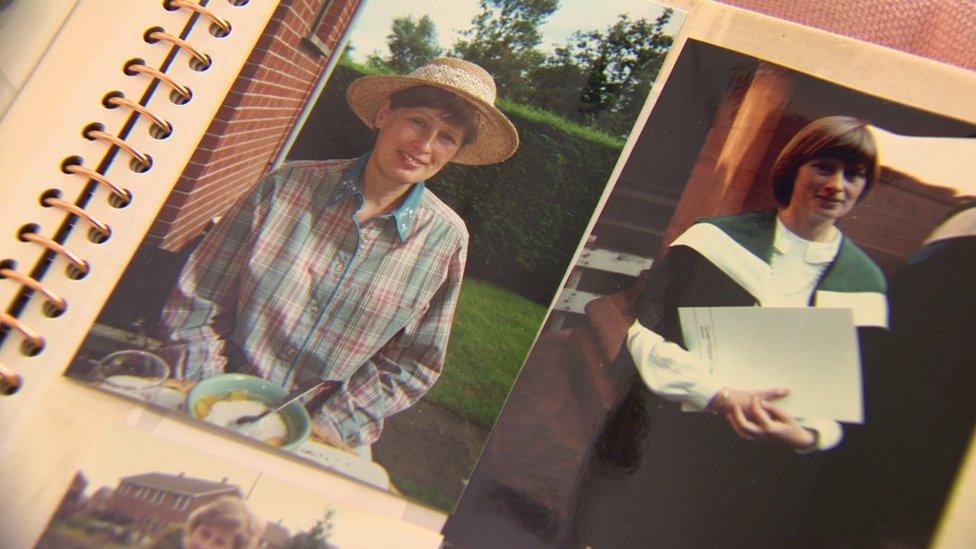
Miriam's sister Jennifer lives with young onset Alzheimer's disease
Miriam said she takes "each day as it comes".
"That is the thing about carers - you are locked into a situation that you have no knowledge or experience of unless it has been in your family before. I feel completely boxed in and I have lost my own identity," she said.
The last carers strategy for Northern Ireland was published almost two decades ago.
According to Ms Smyth, the document is out of date and does not reflect the lives and needs of unpaid carers in 2023.
Last month, the Coalition of Carers Organisations Northern Ireland published a report which said it was "high time" that Northern Ireland made a start and began to treat unpaid carers as a strategic priority for government and society in general.
According to Ms Smyth, Northern Ireland is lagging behind the rest of the UK and no-one whatever their circumstances should battle the dementia journey alone.
Related topics
- Published5 June 2023
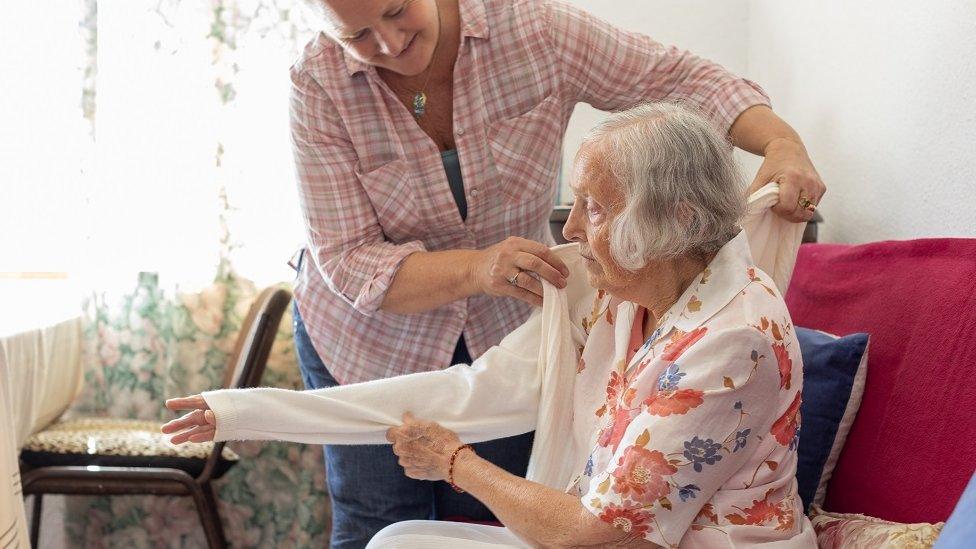
- Published18 January 2023
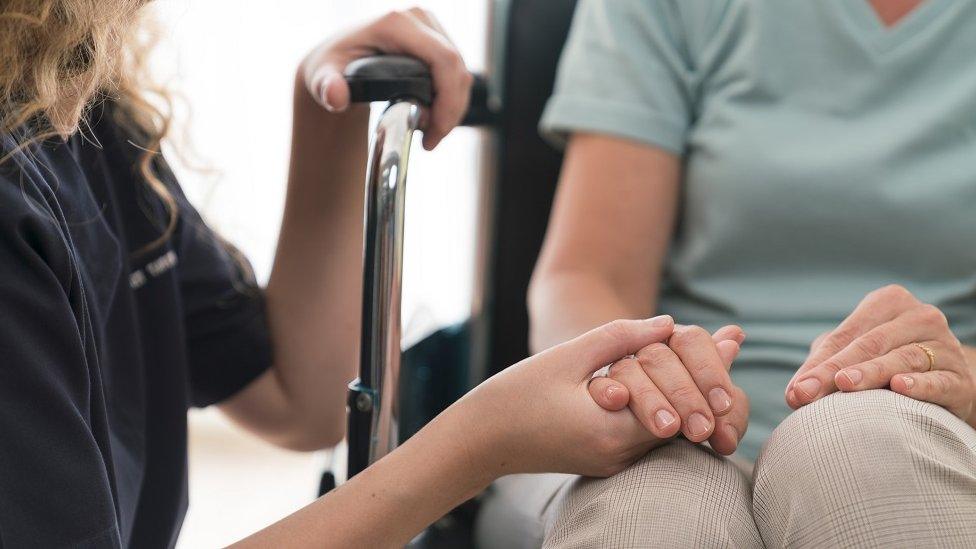
- Published8 November 2022
